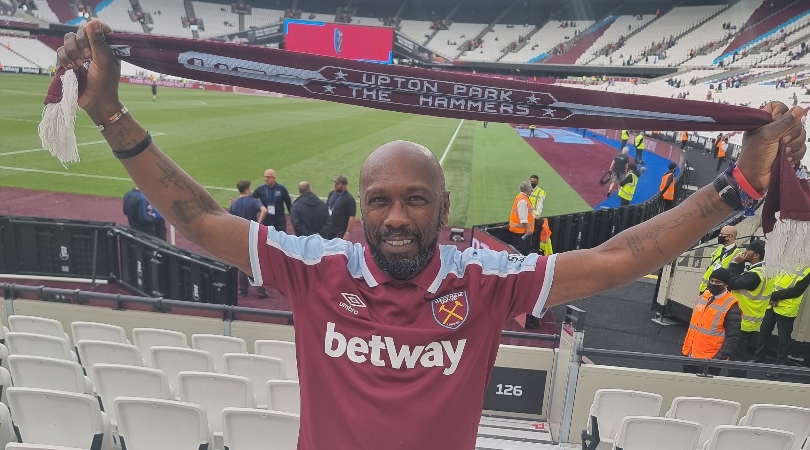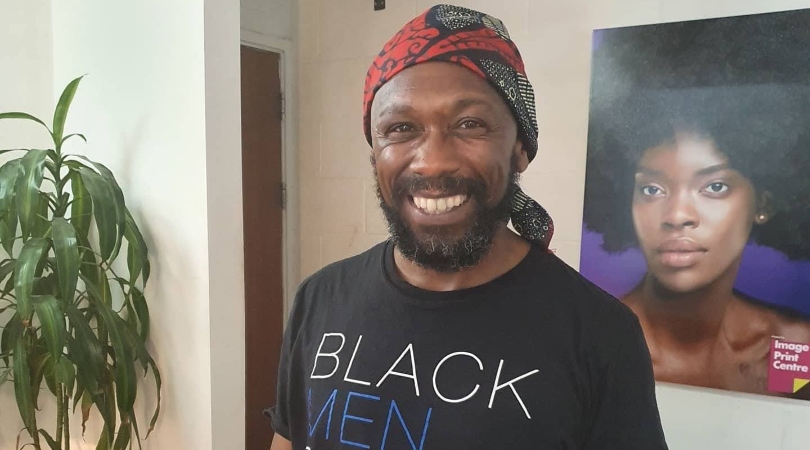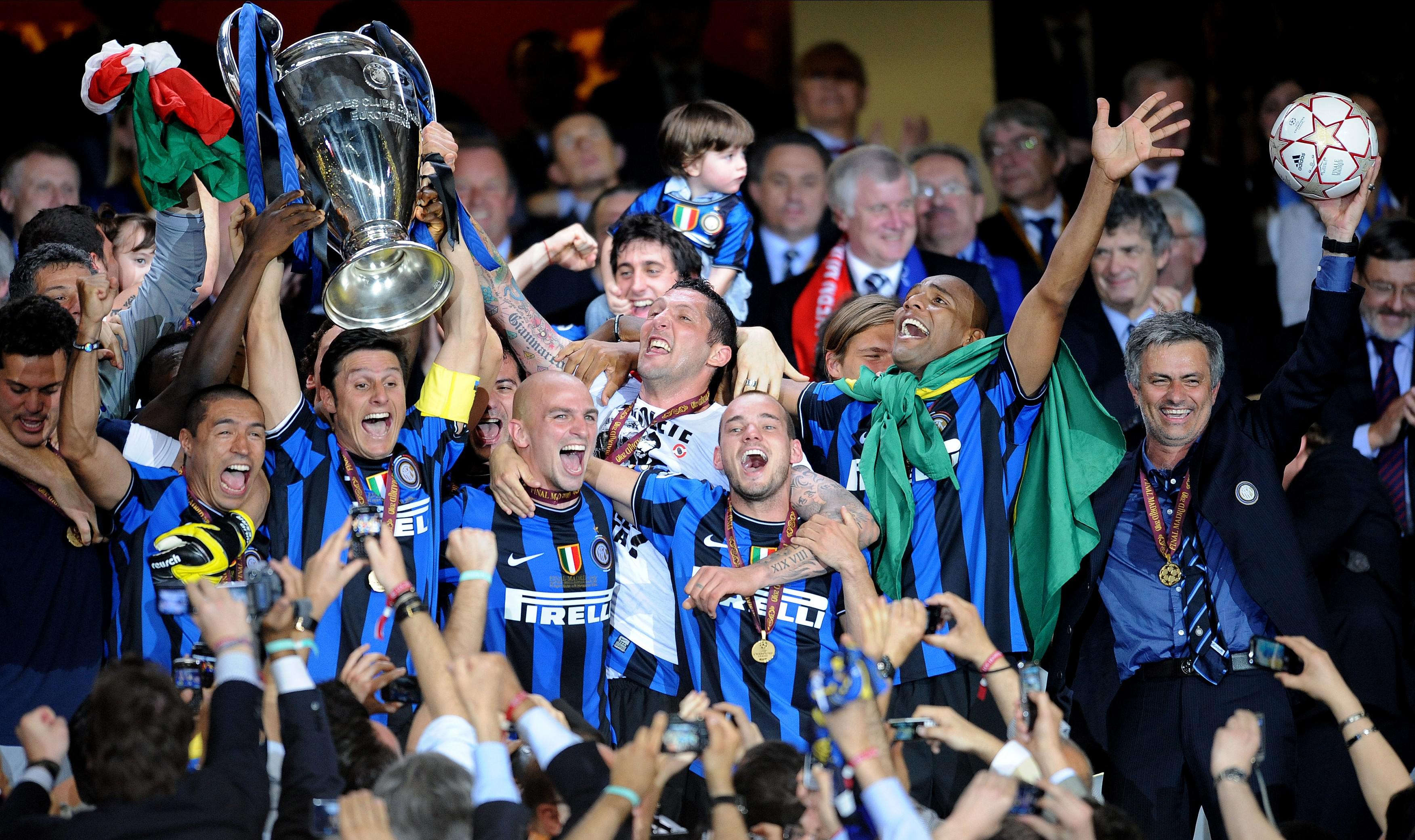"Like a typical guy, I just got on with things": How one football coach found how to open up about cancer
Charlie discovered that the difficulties of cancer don't just end with illness – but with help from Macmillan, he's discovered how to come back stronger

When he turned 50, Charlie decided to mark it by fulfilling a lifelong dream. He used all of his annual leave and went to America to coach football for two months.
A big West Ham fan (“massive”, he corrects FourFourTwo) he was inspired by his trip to start a degree so he could get the qualifications to coach at a higher level and set up his own business as a football coach.
“I got a hall and the facilities, went out and did all the marketing and promotion,” he says now. “But within a month of running it, I was diagnosed with cancer, and I had to put my coaching degree on hold.”
It was a huge blow. And as he went through the chemotherapy treatment, things didn’t necessarily get better: some of the side effects hit him hard. “Tiredness was the worst, when you’re an active guy. I could barely lift a knife and fork.”
Even after recovery, he wasn’t prepared for how difficult things would be. Returning to work was like being a new employee, and people who had looked out for him while he was sick were suddenly around less. “Everyone wants to be your friend: people come and see you, they’ll ring you, they’ll message you… Then all of a sudden, once you’re told you’re in remission, that’s gone.”
Fortunately, during his treatment, Charlie was assigned a Macmillan Cancer Support nurse.
“Look at the work they do, they’re fantastic,” he explains to FFT. "The financial support was the main one. Through Macmillan I was able to get a grant to help with my travel expenses.
Get FourFourTwo Newsletter
The best features, fun and footballing quizzes, straight to your inbox every week.
“They also put me in touch with getting counselling support. Returning to work was quite tough, I was away from work for two years going through the cancer treatment.”
This latter help has played a much bigger role than he expected.
Charlie had been diagnosed with germ cell tumour, a type of cancer that can return. Even five years on from his successful treatment, he still has checks twice a year. So far, it’s all been okay, but it means that the cancer is still part of his life – it’s not something he can yet leave behind.
During that period, he found that it was some of the things he least anticipated that were the hardest to deal with.
Side effects such as hair loss hit hard. During chemo, he had grown out a beard for the first time – purely because the stress of everything else meant he’d not got around to shaving.
Ribbed by his dad for being “untidy”, he went for a beard trim and was suddenly surprised to find the compliments coming his way: “I looked quite smart, everyone said it looked cool”. Just as he got used to it, a week later, he was washing his face, “and all this hair started to come out.” Charlie's confidence took a dip, but he then made a promise to himself then that he’d grow the beard back as soon as he could as he knew it would make him feel good.

Charlie also discusses his experience of being a Black man going through cancer and the taboos that can come with talking about illness within his community. He believes that there’s more to be done to break down these barriers and drive conversation but generally feels that “there’s definitely a change in attitude, especially after Black Lives Matter.” He credits the likes of England’s Marcus Rashford and Raheem Sterling, and former Yorkshire cricketer Azeem Rafiq for leading the way in shining a spotlight on sensitive topic areas such as mental health and racism, respectively. Charlie also applauds them for creating room for people of colour to vocalise their own struggles – and not just limited to racism, but experiences like cancer too. And while he’s encouraged at the conversations it has prompted, he’s clear that “Black Lives Matter shouldn’t just be a moment.”
Having grown up in a society where it was unusual for people from his local Black community to speak about their feelings, he tried to deal with his diagnosis by himself until he found the confidence to talk and felt the benefit of it: “Things like that you thought would never affect you, especially as a man. Like a typical guy, I just got on with things.”
It’s this attitude that Macmillan – and Charlie – are now trying to combat. Many men feeling the need to deal with difficult issues themselves, and are wary of seeming like they are dumping their problems on others.
This can be dangerous: men make up just over half of cancer diagnoses, with around 1 in 170 men diagnosed per year. Yet in 2020, only 31% of the calls to the Macmillan Support Line came from men.
Opening up about cancer – whether that’s apprehension about treatment, the side effects, or how it might affect your dating life or rights at work – isn’t a burden, and it could be crucial to ensuring that men get the support they need.
Macmillan is doing whatever it takes to help people find the words to talk about cancer, with its free, confidential phone line open seven days a week, 8am to 8pm to support people with cancer with any question, big or small, and the Macmillan Cancer Support website has information on cancer types, treatments and impacts and can direct people to the support that’s right for them.
For his part, Charlie has used his time to start a podcast series, Black Men Rising, to encourage people of colour to talk openly about their cancer experiences and he also hopes that everyone can take something from the advice and stories shared. And he’s open about his aspirations, too: “I have dreams of restarting the coaching business; I’ve restarted the degree and hope to graduate next year.”
It’s not easy to talk about cancer but it could help. Whether it be about cancer, work, money or life, the big things and the small stuff, Macmillan is at the end of the phone and online to provide support. Call 0808 808 00 00 or visit macmillan.org.uk and ask anything.

Conor Pope is the former Online Editor of FourFourTwo, overseeing all digital content. He plays football regularly, and has a large, discerning and ever-growing collection of football shirts from around the world.
He supports Blackburn Rovers and holds a season ticket with south London non-league side Dulwich Hamlet. His main football passions include Tugay, the San Siro and only using a winter ball when it snows.

